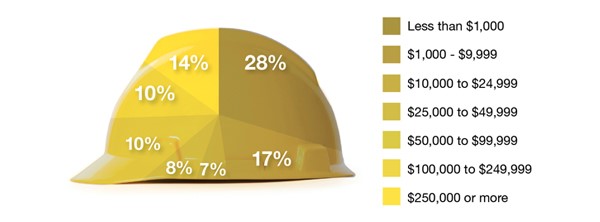Caring for Aging Parents
Thanks to healthier lifestyles and advances in modern medicine, the worldwide population over age 60 is growing. The United Nations estimates that by 2050 the number of people aged 60 and older will have more than doubled.¹ As our nation ages, many Americans are turning their attention to caring for aging parents.
For many people, one of the most difficult conversations to have involves talking with an aging parent about extended medical care. The shifting of roles can be challenging, and emotions often prevent important information from being exchanged and critical decisions from being made.
When talking to a parent about future care, it’s best to have a strategy for structuring the conversation. Here are some key concepts to consider.
Cover the Basics
Knowing ahead of time what information you need to find out may help keep the conversation on track. Here is a checklist that can be a good starting point:
- Primary physician
- Specialists
- Medications and supplements
- Allergies to medication
It is also important to know the location of medical and estate management paperwork, including:
- Medicare card
- Insurance information
- Durable power of attorney for healthcare²
- Will, living will, trusts and other documents²
Be Thorough
Remember that if you can collect all the critical information, you may be able to save your family time and avoid future emotional discussions. While checklists and scripts may help prepare you, remember that this conversation could signal a major change in your parent’s life. The transition from provider to dependent can be difficult for any parent and has the potential to unearth old issues. Be prepared for emotions and the unexpected. Be kind, but do your best to get all the information you need.
Keep the Lines of Communication Open
This conversation is probably not the only one you will have with your parent about their future healthcare needs. It may be the beginning of an ongoing dialogue. Consider involving other siblings in the discussions. Often one sibling takes a lead role when caring for parents, but all family members should be honest about their feelings, situations, and needs.
Fast Fact: The state with the oldest population is Florida, with 19.06% of its population over the age of 65. Maine is second, with 18.24%.
Source: WorldAtlas.com, March 8, 2018
Don’t Procrastinate
The earlier you can begin to communicate about important issues, the more likely you will be to have all the information you need when a crisis arises. How will you know when a parent needs your help? Look for indicators like fluctuations in weight, failure to take medication, new health concerns, and diminished social interaction. These can all be warning signs that additional care may soon become necessary. Don’t avoid the topic of care just because you are uncomfortable. Chances are that waiting will only make you more so.
Remember, whatever your relationship with your parent has been, this new phase of life will present challenges for both parties. By treating your parent with love and respect—and taking the necessary steps toward open communication—you will be able to provide the help needed during this new phase of life.
To learn more about CapSouth Wealth Management and the services we provide, contact us at 800.929.1001 or visit our website at www.CapSouthWM.com https://capsouthwm.com/services/financial-estate-planning/
- United Nations Department of Economic and Social Affairs, 2017
- Note: Power of attorney laws can vary from state to state. An estate strategy that includes trusts may involve a complex web of tax rules and regulations. Consider working with a knowledgeable estate management professional before implementing such strategies.
The content is developed from sources believed to be providing accurate information. The information in this material is not intended as tax or legal advice. It may not be used for the purpose of avoiding any federal tax penalties. Please consult legal or tax professionals for specific information regarding your individual situation. This material was developed and produced by FMG Suite to provide information on a topic that may be of interest. FMG, LLC, is not affiliated with CapSouth Wealth Management. The opinions expressed and material provided are for general information and should not be considered a solicitation for the purchase or sale of any security. Copyright 2020 FMG Suite.
CapSouth Partners, Inc., dba CapSouth Wealth Management, is an independent registered Investment Advisory firm. CapSouth does not offer tax, accounting or legal advice. Consult your tax or legal advisors for all issues that may have tax or legal consequences.






